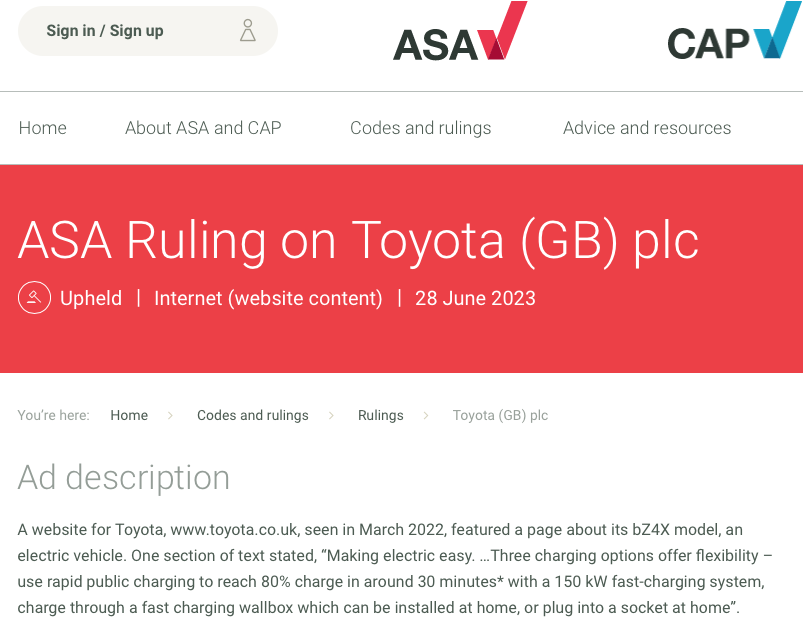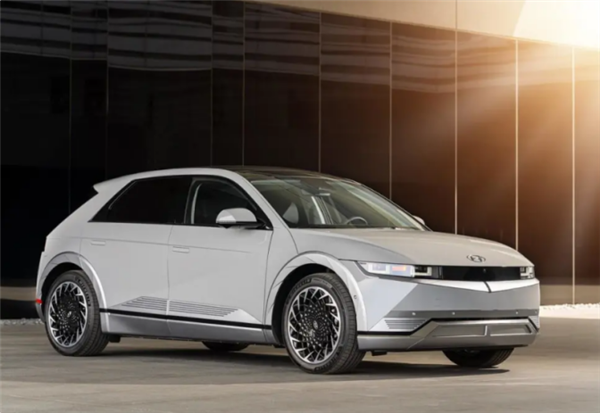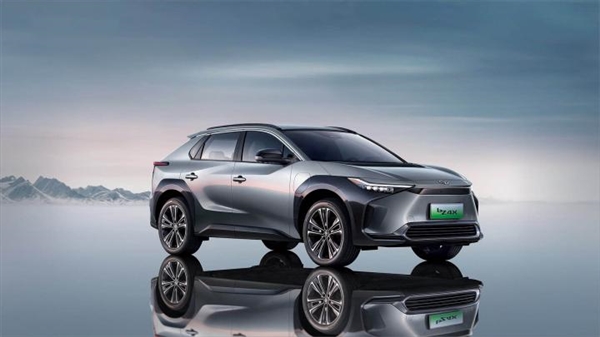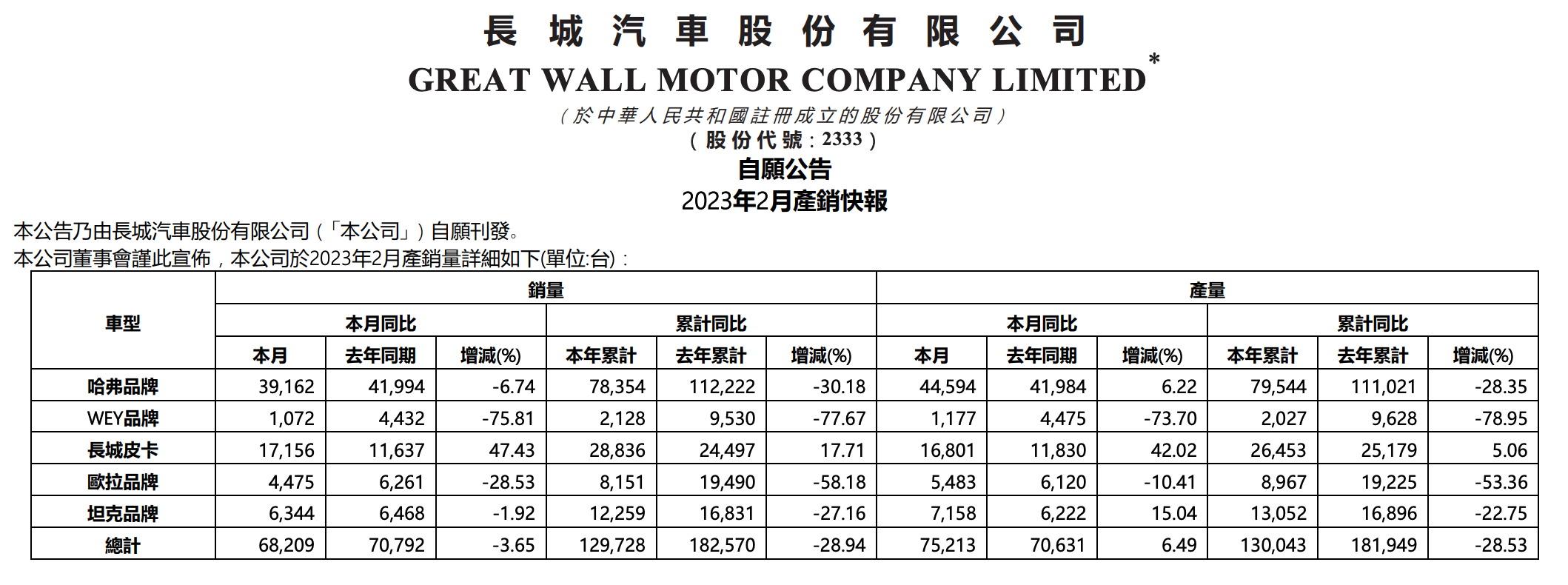In addition to Weibo, there is also WeChat
Please pay attention

WeChat public account
AutoBeta


2024-11-17 Update From: AutoBeta autobeta NAV: AutoBeta > News >
Share
AutoBeta(AutoBeta.net)06/30 Report--
According to the Guardian, the British advertising regulator (ASA) has imposed a ban on advertising by Toyota and Hyundai because their advertisements are suspected of false publicity, including exaggerating the short charging time of their electric vehicles, and the claim that "charging piles are easy to find" is also suspected of misleading consumers.

According to the report, Japanese carmaker Toyota has launched a publicity campaign for its model bZ4X on its British website, claiming that the car can be recharged to 80% of its electricity with 150kW DC fast charging in 30 minutes, and drivers can "easily find fast charging piles in public places", especially where drivers need them most. Hyundai, another carmaker, has adopted a similar marketing strategy, promoting IONIQ 5 on its website, YouTube and digital billboards in well-known business district squares, saying it uses a 350kW charger that can be charged from 10 to 80 per cent in 18 minutes.

After the two advertisements were released, the British advertising regulator received complaints against the above advertising campaigns of Toyota and Hyundai. The complainants questioned the authenticity of the charging time claimed by the two electric carmakers and did not agree that DC fast charging piles could be easily found across the UK.
In the ad, Toyota said it had 419 charging points in 134 locations in the UK, but did not specify the location, including seven in Scotland, two in Wales and none in Northern Ireland. Of the 37 350kW ultra-fast charging points listed in modern ads in the UK, there are only six in Ireland, a "limited number" in Scotland and Wales and none in Northern Ireland.
With regard to this claim, with regard to the charging time, both companies admit that these advertisements are based on theory and can only be realized under relatively perfect conditions. But when it comes to charging sites, both Toyota and Hyundai point out that their claims do not mislead consumers because drivers are less likely to need fast charging on short distances and can instead use more widely distributed slow charging stakes. The advertised fast charging piles are rarely used.

The UK advertising regulator ruled: "We believe that because advertising omits factors that may significantly affect the advertised charging time and restrictions related to the availability of charging piles."... these claims have not been confirmed and are misleading. "
The above two models involved in false propaganda are new energy vehicles. In fact, it is not uncommon for new energy vehicles to be questioned by consumers because of advertising problems in the domestic market. According to the national complaint information released by the General Administration of Market Supervision in 2022, the platform received 16000 complaints about new energy vehicles in 2022, an increase of 62.84 percent over the same period last year. Among them, contract problems, quality problems, and false propaganda problems grew rapidly, up 126.33%, 77.35% and 75.65% respectively over the same period last year.
However, the ban on Toyota and Hyundai advertising took place only in the UK, not in the domestic market.
Welcome to subscribe to the WeChat public account "Automotive Industry Focus" to get the first-hand insider information on the automotive industry and talk about things in the automotive circle. Welcome to break the news! WeChat ID autoWechat
Views: 0
*The comments in the above article only represent the author's personal views and do not represent the views and positions of this website. If you have more insights, please feel free to contribute and share.











© 2024 AutoBeta.Net Tiger Media Company. All rights reserved.